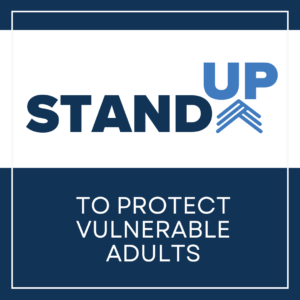Every (good) seminary instructs students about healthy churches. From a biblical perspective, what are the qualities of a healthy congregation? How can a pastor facilitate the development of those qualities? How long does it take to build genuine health into an unhealthy church?
The subject of church health serves as a vital corrective to the all-too-common assumption that the numerical size, doctrinal teaching, longevity, or popular ministries of a church are in and of themselves indicators of divine approval and blessing of a “faithful” church. Increasingly, both Christian and secular news sources challenge such simplistic thinking as they regularly report the fall of well-known pastors and, often, the large, seemingly successful, attractive churches they lead. The fall of these ministries is usually related to some form of abusive, often sexual, deceitful, and manipulative behavior in its leaders.
I find it unfortunate and tragic that in my seminary training (which was at a top-notch seminary), the issue of church safety wasn’t discussed or acknowledged as a critical component to church health. When I graduated from seminary in 2003, the horrors of child sexual abuse uncovered in the Boy Scouts, the Mormon Church, and the Catholic Church had yet to be widely exposed and prosecuted. The Southern Baptist Convention had not been called to account for its allowance of alleged sexual molesters in its pulpits (and continues to struggle with the issue today).[1]
In a sense, the stories of child sexual abuse were out there, but they simmered somewhere on the back-burner in the American religious scene. The relationship between the safety of a church and its overall health wasn’t on the radar. I suppose most families handled the trauma of child sexual abuse in a church setting as my family did in 1997, when our two daughters told us of their abuse by the pastor of a church we had recently left. We reported the abuse to the police and waited for an arrest that didn’t come. Then, we tried to get through life as we watched the abuser’s church continue with its programs, services, and teaching, seemingly oblivious to the accusations lodged against its pastor.
Now, thank God, that just might be changing.
Pastors, focusing on church safety can be challenging, and it requires transparency and backbone. When you start to think about church safety, you consider some uncomfortable but vital things about churches. Maybe even about your church. You are acknowledging that churches may not all be safe. You might even know churches that are not safe for children and the vulnerable. You might even know of instances in churches that perhaps didn’t seem right to you in the past and were not addressed. But now, you can’t stay silent anymore. You’re not thinking of parking lot sizes, sanctuary seating capacities, doctrinal fidelity, or church growth and expansion plans. Now you’re thinking of both the physical and spiritual well-being of your church. Now you’re talking about doing the work of a shepherd: protecting, watching, and taking preemptive action to build a safe church, not just one that appears to be healthy. And isn’t that what our Master, the Good Shepherd did? And isn’t that really what we preach, that when anyone trusts in this Shepherd, they have come to a new home? And like any good home, this home is a safe place for them and their children?
So, pastors, it is worth the effort and investment of time to see that your church is a safe place for children. Particularly regarding the safety of the children in your church, with the need for training, vigilance, purposeful structure and policy, etc., you are probably the most significant voice in the church that can make real change happen.
The Evangelical Council for Abuse Prevention is an organization committed to preventing abuse in Christian ministries and schools. So, perhaps a first step toward building your church into a safe church along with being a healthy church is to reach out to ECAP and see what they’re all about, what they are doing, and how you might partner with them to ensure that your church is a safe church. Because a healthy church is a safe church, and a safe church is a healthy church.
[1]https://religionnews.com/2020/05/04/theres-a-new-baptist-sex-abuser-database-but-sbc-action-is-still-needed/ (August 26, 2021)





